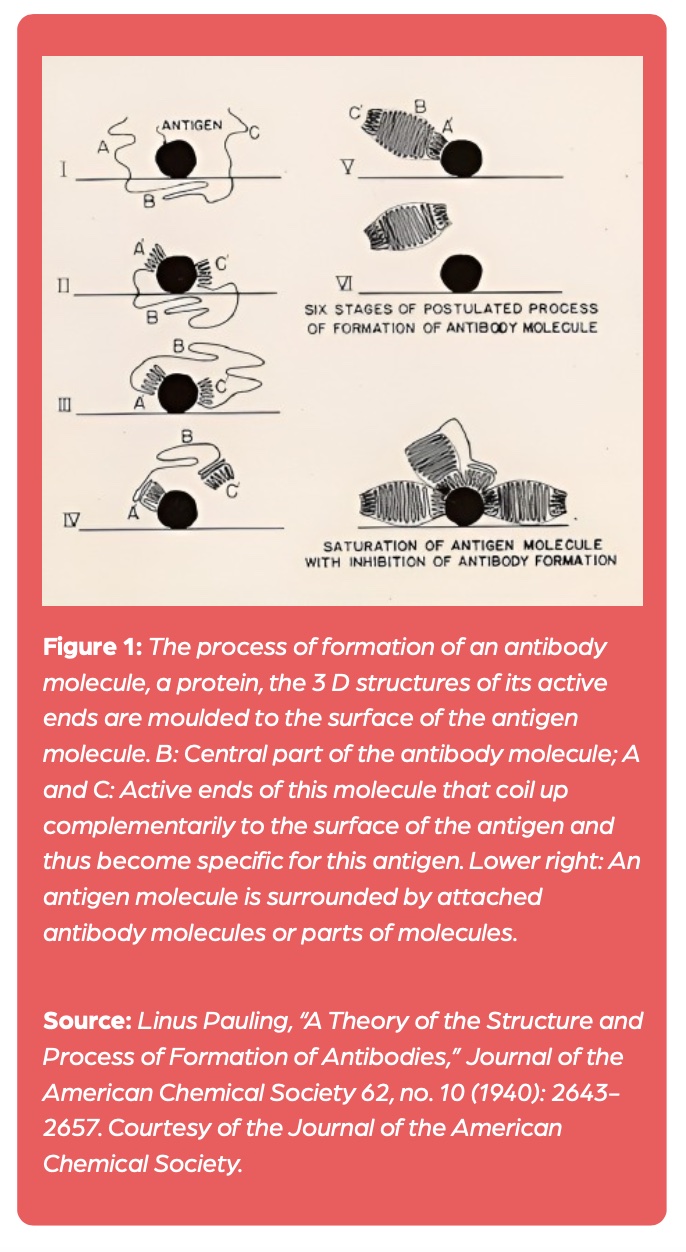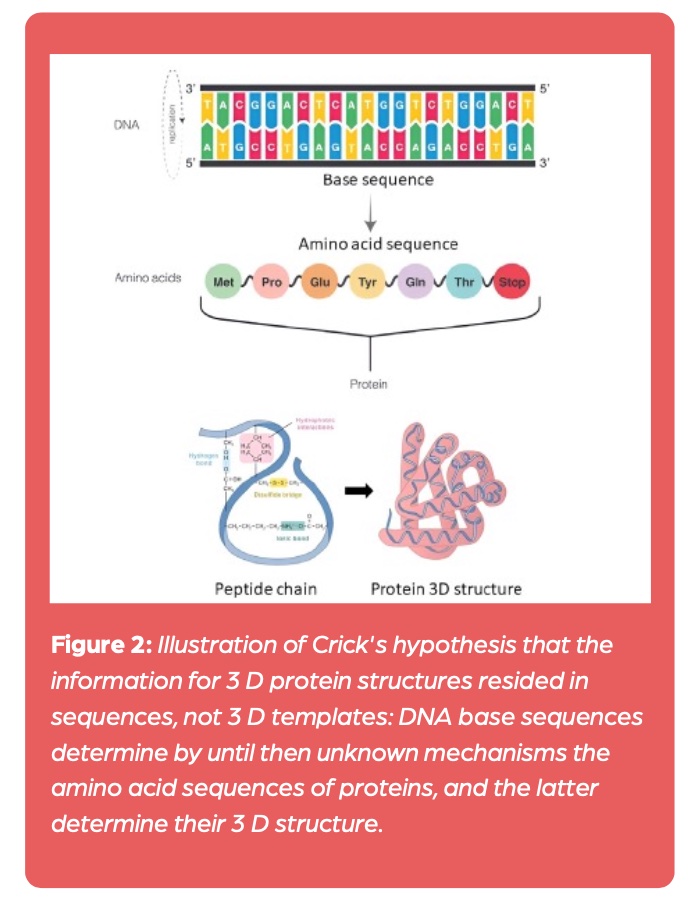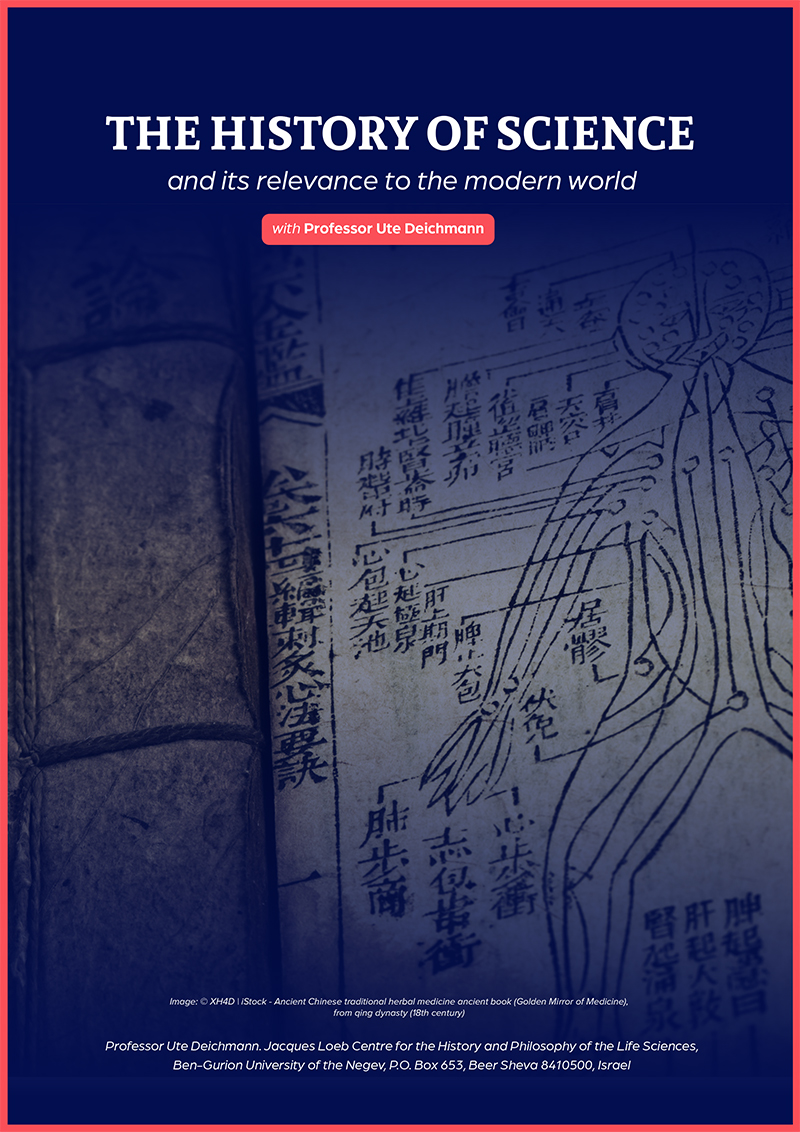Professor Ute Deichmann, Jacques Loeb Centre for the History and Philosophy of the Life Sciences, shares some of her expertise of the history of science, with a particular focus on misconceptions and threats to modern day science
The history of science is the study that covers the development of science from ancient times to the present, encompassing natural, social and formal science. Professor Ute Deichmann, historian of modern life sciences professor at Ben-Gurion University of the Negev in Israel, provides her insight into why history of science matters, and why it is relevant to studies today.
Could you summarise your latest research and illustrate its relevance to the modern world?
I have worked on a number of different projects in the history of the biological and chemical sciences, of which I briefly describe three that are highly relevant to present-day science.
(i) I have examined the history of chromatin research and epigenetics and their current studies as well as frequent misconceptions about epigenetics. The concept of chromatin as a complex of nucleic acid and proteins in the cell nucleus was developed by cytologists and biochemists in the late 19th century. It was the starting point for biochemical research on DNA and proteins in the cell nucleus. A few decades later, chromatin research became concerned not only with its structure but also its function in gene regulatory processes in the development of higher organisms.
Different scientific contexts changed the relevance and meaning of chromatin from the 19th century. Since the late 20th century, research on chromatin modifications, as well as DNA methylation that emerged in the 1970s, has also been conducted under the label ‘epigenetics’, a term that originally related to the complex processes between genotype and phenotype during development. Research termed epigenetics became fashionable when, in the late 20th century, heritability was added to its frequently changing definition.
Currently, the term epigenetics means many things, for example, research on histone and DNA-modifying enzymes, nucleosome remodelers, chromatin-binding proteins to facilitate transcription factor and polymerase action, modification of chromatin architecture, long non-coding RNA and small interfering RNA in transcriptional regulation.
I have frequently pointed out misconceptions and media hypes in epigenetics, among them unsupported claims about transgenerational inheritance in humans. I have shown that epigenetics cannot be clearly separated from genetics because epigenetic mechanisms such as DNA methylation or histone modification are dependent on DNA sequence-specific events. Gene activation and repression during development are controlled not by epigenetic events but by well-established protein- and RNA-based mechanisms that may sometimes recruit epigenetic factors.
(ii) I analysed the roles of data, knowledge, and logic in the creation of seminal molecular biological theories using the example of Linus Pauling’s structural and Francis Crick’s informational theory of biological specificity and protein synthesis in the 1940s and 50s. Pauling believed that proteins were synthesised on three-dimensional templates and amino acid sequences were not important to this process, whereas Crick was convinced that the information for protein structures resided in sequences – DNA base sequences determine the amino acid sequences of proteins that then determine their structure.

Both theories were based on nearly the same experimental data that, taken alone, were insufficient to support the theories. But the explanatory power and probability of Crick’s theory were significantly higher than Pauling’s when considering knowledge and logical reasoning beyond the direct experimental data. I argue that in general, data, despite its importance, does not speak for itself, an argument that is highly relevant concerning current claims to the contrary in big data science.
(iii) I am researching the relevance of self-organisation and genomic causality in models of morphogenesis, that is, the generation of form in animal development. The debate about what causes the generation of form and structure in embryological development dates back to ancient times. Most recently, it has focused on divergent views about whether the generation of patterns and form in development is a largely self-organised process or mainly based on complex developmental gene regulatory processes.
After having analysed pertinent models of pattern formation and form generation, I show that unlike physical-chemical models of self-organisation, Eric Davidson’s and colleagues’ theory of early embryogenesis based on gene-regulatory network analysis and its mathematical modelling was not only able to provide a mechanistic and causal explanation for gene regulatory events controlling development cell fate specification, but also for the effects of evolution and organisms’ longstanding developmental and species stability.
It is true, in biology many cases of a spontaneous emergence of patterns or forms have been described that seem to be driven by physical or chemical forces and that are therefore labelled self-organised. But, based on many scientific studies to this effect, I argue that in many cases the concept of self-organisation is only fruitful when it is included in the frame of genomic causality.
Why is the history of science important?
Studies in the history of science shed light on how the current knowledge about the natural world has evolved. They help rationalise major concepts that are commonly used to describe the operation of science, for example, discovery and progress. They show that the authority of science in modern societies is grounded in the fact that scientific methods and reasoning are best suited to generate reliable objective knowledge. Historical studies also show that non-scientific factors impact the development of science, among them scientific personalities and their philosophies, ideologies, politics, and availability and direction of funding. Personal factors such as abilities, beliefs, motivations, and practices strongly influence the scientific process.
History and philosophy provide arguments against public misconceptions of science. Among other things, they show that evidence-based testable scientific statements are not opinions like many other statements, and that all the major breakthroughs in medicine and technology, such as mRNA vaccines, cures for Hepatitis C, cancer therapies, and applications of genome editing through CRISPR cas9, are not the result of rapid, application-oriented research but decades-long basic research.
Knowledge of history also contributes to the development of scientific knowledge. Thus, molecular embryologist Eric Davidson, himself influenced by Boveri’s evidence for the central role of the cell-nucleus in development a century earlier, emphasised the importance of historical studies for scientists: ‘Conceptual advance, and conceptual history, can never truly be separated.’ (Laubichler and Davidson 2008, p. 10).
History also contributes to science education, where a look at history can help understand the scientific and societal context of current research. It can show the personal and social conditions for good science and help clarify the distinction between science and pseudoscience.

What is the greatest lesson you have learnt in your research into the history of science?
While it is known that science is one of few truly progressive human activities – you only have to compare the success of scientific medicine or molecular genetics with medical practices or ideas about heredity 100 years ago – I have learnt in my research that progress in science is a lengthy process that is anything but linear.
The underlying research is arduous and fallible, there are dead ends, and there is also misconduct. There are many cases in which scientists for a long time adhered to certain theories and practices in fashionable fields, even when they became increasingly questionable or obsolete. But I also learnt that in societies where science is self-determined and not forced in certain directions, new scientific developments and a critical scientific community usually led to these erroneous concepts or practices being abandoned after some time. Examples that I studied are flawed template theories of antibody formation that were promoted by Linus Pauling in the 1940s and 50s, and the erroneous idea of embryological development not being determined by genes that was propagated by Hans Spemann in the 1920s and 30s.
What do you think are the greatest threats to science today?
(i) The trend towards rapid commercialisation of science is one of them. Commercialisation is not a problem per se, but it can lead to declining support for research that does not provide quick practical solutions. It can also lead to a brain drain of the most talented people from fundamental, that is, not – or not yet – commercialised fields of research.
(ii) Another danger is related to the availability of large amounts of data for research. In biology, the existence of large amounts of sequencing and gene expression data and new computational methodology tremendously facilitates systems approaches and pattern recognition in many fields of research. But dangers arise when data-driven correlation is used to replace experimentation and causal analysis. Big-data-only research with huge funding flourishes for example in medical research, where many young people believe that it is possible to conduct good science without knowledge of the molecular basis of disease and experimental testing of hypotheses. But renowned scientists emphasise that hypothesis and experimental methodologies have remained fundamentally important as long as causal-mechanistic explanations of complex systems
are pursued.
In an interview that I conducted with him in 2022, genomicist Edison Liu, the longstanding director of the Jackson Laboratories, commented on claims that experiments and hypotheses are becoming unnecessary that, despite the extraordinary power of big data and genomics, ‘it does not follow, that we’re at a point now that we don’t need human intervention, thoughtful experimentation, and hypothesis testing. In fact, I would argue that in the world of big data, one needs hypotheses to frame rational outcomes. With big enough datasets, you need something that actually constrains what you are looking for, because the possible outcomes of complex systems can be near infinite’ (Liu 2022).
Computer scientist Judea Pearl has criticised the tendency in mainstream statistics to always grant data priority over opinions and interpretations, because data is deemed objective. According to Pearl, ‘unlike correlation and most of the other tools of mainstream statistics, causal analysis requires the user to make a subjective commitment’. Pearl believes that ‘some statisticians to this day find it extremely hard to understand why some knowledge lies outside the province of statistics and why data alone cannot make up for lack of scientific knowledge’ (Pearl and Mackenzie 2018, pp. 88-89). Knowledge and causal analyses are cornerstones in experimental biology, where the concept of genomic causality is today at the core of genetics, developmental biology, and evolution.
(iii) Major dangers for science today are the suppression of free speech and an open discourse in academia, and the new identity and race policies with their devastating effects on the scientific merit system, the level of scientific performance, and the notion of scientific truth. Identity policies allegedly aim at improving social justice in academia.
They are related to the group identities of race and gender and operate under the labels of Decolonizing Science and Diversity, Equity, and Inclusion (DEI). I illustrate this by briefly summarising the case of Tomáš Hudlický and the journal Angewandte Chemie (for details see Deichmann 2022):
Tomáš Hudlický (1949-2022) was a renowned chemist at Brock University in Canada. In an article that was reviewed and published on the website of the journal Angewandte Chemie in 2020, Hudlický defended the merit system and the idea of equality of opportunity in academia, criticising new ideologies that ‘influenced hiring practices, promotion, funding, and recognition of certain groups’. In his opinion, ‘each candidate should have an equal opportunity to secure a position, regardless of personal identification/categorization’. He pointed to the racism inherent in ‘hiring practices that suggest or even mandate equality in terms of absolute numbers of people in specific subgroups’, because it may result ‘in discrimination against the most meritorious candidates’.
This statement reflects long-established norms, but it is neither racist nor sexist. Despite this, a public outcry on social media, especially Twitter, followed the publication, mostly from North America, in which Hudlický’s views, and he personally, were attacked as ‘racist’ and ‘sexist’. Responses from the journal, universities, and other scientific institutions to Hudlický’s article reveal an alarming degree of conformism with the opinion of militants on social media.
The journal Angewandte Chemie felt compelled to remove the piece from its website. Sixteen members of its International Advisory Board, all of them renowned scientists, resigned, denouncing the ‘disturbing act of Angewandte Chemie accepting and publishing an essay that promotes racist and sexist views’. As mentioned before, the article supported conservative values, but it did not promote ‘racist’ or ‘sexist’ views.
Hudlický’s case shows how the power of the new ideology DEI combined with a militant social media storm can seemingly override the rationality even of highly renowned scientists and scientific institutions and damage the reputation of a respected chemist. DEI policies are widespread in academia today, especially in the United States, where employment, promotion, or funding are increasingly based on the categories of race and gender to reach equity. It has begun to endanger scientific achievement, and additionally, the suppression of a free debate about what the conditions for good science are, as Hudlický tried to do, contributes to the decline of science.
References
- Deichmann, U. 2022. Science and the ideology of race in Western democracies. https://hxstem.substack.com/p/science-and-the-ideology-of- race
- Laubichler, M. D., and Davidson, E. H. 2008. Boveri’s long experiment: Sea urchin merogones and the establishment of the role of nuclear chromosomes in development. Developmental Biology 314, 1–11.
- Liu, E. 2022. Interview by Ute Deichmann, New York City. https://in.bgu.ac.il/en/loeb/OHP/Pages/Edison-Liu.aspx
- Pearl, J., and Mackenzie, D. 2018. The Book of Why. The New Science of Cause and Effect. Basic Books. New York, NY.
To read and download this full eBook on “The History of Science”, click here


